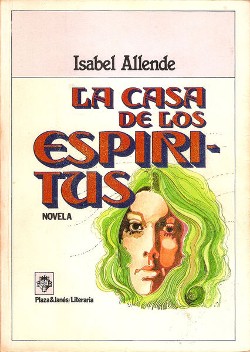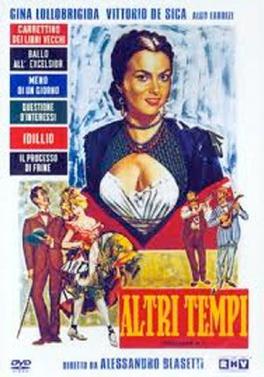Related Research Articles

The House of the Spirits is the debut novel of Isabel Allende. The novel was rejected by several Spanish-language publishers before being published in Barcelona in 1982. It became an instant best-seller, was critically acclaimed, and catapulted Allende to literary stardom. The novel was named Best Novel of the Year in Chile in 1982, and Allende received the country's Panorama Literario award. The House of the Spirits has been translated into over 20 languages.

Marimar is a Mexican telenovela created by Inés Rodena and produced by Valentín Pimstein and Verónica Pimstein for Televisa in 1994. It is a remake of the 1977 telenovela La venganza, which is in turn based on the radionovela La indomable.

Angélica María Hartman Ortiz, also known as "La Novia de México", is a Mexican singer and actress. She debuted as a child actress in the Golden Age of Mexican Cinema in films such as Pecado (1951), Una mujer decente (1951) y Mi esposa y la otra (1954). During the 1960s, she became a teen idol in Mexico thanks to her telenovelas and films, along with her musical career with compositions by Armando Manzanero that made her known as a rock and roll and pop ballad singer. Her hits include the Hot Latin Tracks top 40-singles "El hombre de mi vida", "Reina y cenicienta", "Prohibido" and "El taconazo".

Azela Robinson is a British Mexican actress. She has portrayed antagonistic characters in the Mexican telenovelas Cañaveral de pasiones (1996), Contra viento y marea (2005), Llena de amor (2010) and Yo no creo en los hombres (2014).

Angélica María Vale Hartman, known professionally as Angélica Vale, is a Mexican and American actress, known also as the daughter of Angélica María, "La Novia de Mexico", and as the daughter of comedian Raúl Vale. She has been working as an actress for almost 30 years, but achieved fame in 2006 when she became the protagonist of La Fea Más Bella, a Mexican telenovela, with her real-life mother. She starred in the webnovela No me hallo as Luchita Guerra a young woman with a big dream of becoming a singer. Early in 2012, Vale was a team captain on the Mexican TV Show Parodiando, of Televisa network. Vale became a U.S. citizen in 2016, while retaining her Mexican citizenship.

Carmen Montejo was a Mexican-Cuban actress.

María del Pilar Teresa Cayetana de Silva y Silva-Bazán, 13th Duchess of Alba, GE, was a Spanish aristocrat and a popular subject of the painter Francisco de Goya.

Marina is an American Spanish-language telenovela that aired for one season on Telemundo. It premièred on October 16, 2006 and concluded on June 28, 2007.

Destilando Amor is a Mexican telenovela produced by Nicandro Díaz González for Televisa in 2007. It is a remake of the 1994 Colombian telenovela Café, con aroma de mujer.
The House of Bernarda Alba is a play by the Spanish dramatist Federico García Lorca. Commentators have often grouped it with Blood Wedding and Yerma as the Rural Trilogy. Garcia Lorca did not include it in his plan for a "trilogy of the Spanish land".

In Olden Days is a 1952 Italian comedy drama anthology film directed by Alessandro Blasetti and featuring an ensemble cast that included Gina Lollobrigida, Amedeo Nazzari, Vittorio De Sica, Elisa Cegani, Barbara Florian, Aldo Fabrizi, Andrea Checchi and Alba Arnova. It was shot at the Cinecittà Studios in Rome. The film's sets were designed by the art directors Dario Cecchi and Veniero Colasanti. It is also known as Times Gone By and Infidelity.

Aurora is a Spanish-language telenovela produced by the United States–based television network Telemundo. It starred Sara Maldonado, Eugenio Siller, and Jorge Luis Pila. As part of the 2010–11 season, Telemundo aired the series from November 1, 2010, to May 20, 2011, weeknights at 8 p.m. eastern, replacing El Clon. As with most of its other telenovelas, the network broadcasts English subtitles as closed captions on CC3.

Mi corazón insiste en Lola Volcán is a Spanish-language telenovela produced by the United States–based television network Telemundo.

Dos hogares is a Spanish-language Mexican drama thriller telenovela produced by Emilio Larrosa for Televisa in 2011.
Marisol was a Brazilian primetime TV Series that aired on SBT starring Bárbara Paz, Carla Fiorini, Adriana Ferreyr, Carlos Casagrande, and Glauce Graieb. Based on the original Mexican by Inés Rodena.

Toda una dama is a Venezuelan telenovela produced and broadcast by the RCTV network in 2007. It is an adaptation by Iris Dubs of the telenovela Señora, originally by the writer José Ignacio Cabrujas and broadcast by the same network between 1988 and 1989.
The Hungry Woman: A Mexican Medea is a 1995 American play by Cherríe Moraga. The play was published by West End Press. It includes aspects of Coatlicue, an Aztec goddess; the play Medea by Euripides; and La Llorona.
Angélica, mi vidalit. transl. Angélica, My Life, is an American telenovela created and produced by Telemundo and Ángel del Cerro in 1988, in cooperation with Capitalvision International Corporation.
Bertila Damas is a Cuban-born American actress.
Angélica Pecado is a Venezuelan telenovela written by Martín Hahn and produced by RCTV in 2000. The telenovela lasted 150 episodes and was distributed internationally by RCTV International.
References
- ↑ "Pani úsvitu". eTHEATRE.SK. Divadelný ústav Bratislava (Theatre Institute Bratislava). Retrieved 11 April 2016.